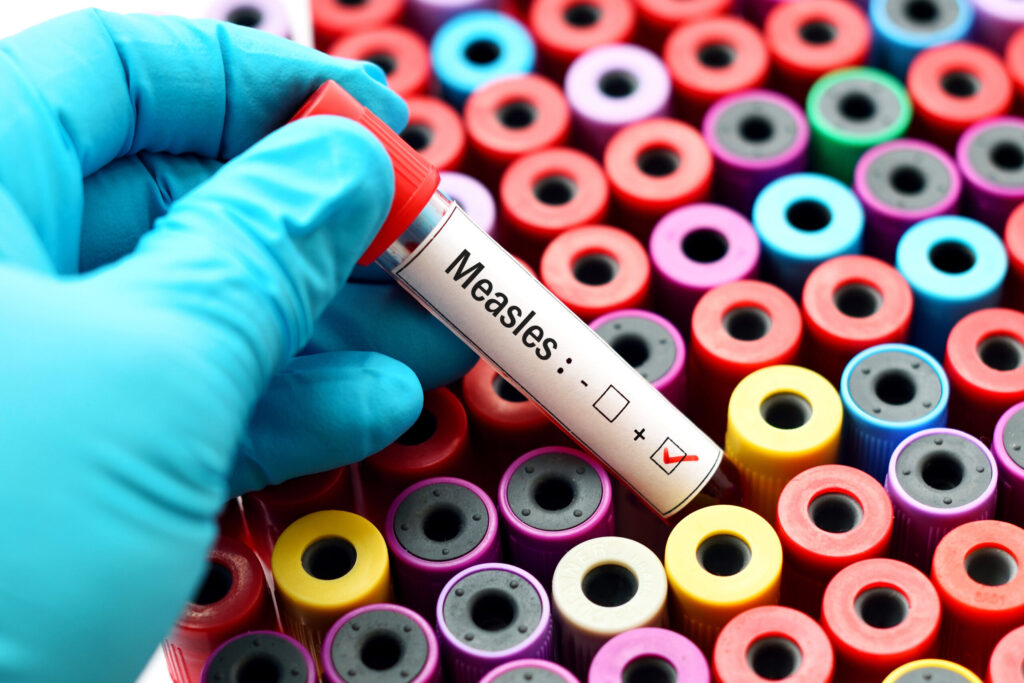BLACK HILLS, SD — Late last week, reports hit the Black Hills area of potential Measles exposure in the city of Hot Springs. This comes on the heels of a 33 year high in cases of measles which has ripped its way through the center of the United States within the past few months with 1,288 cases of measles confirmed in the past few months alone.
The SD Department of Health has since confirmed four cases of measles so far in the black hills area at the time of writing, which doctors say comes off of a decline in vaccination rates nationwide following the initial outbreak of the COVID-19 pandemic. According to Monument Health Pediatrician Dr. Paula Marsland, the vaccinated population dropping below the threshold for herd immunity (estimated to be in the low-90% range, down from 96-97%) is a major cause for the disease’s increasing foothold in the US.
The disease on top of its relative rareness is often difficult to identify in its early stages. “Measles is tricky, because it presents with usually a high fever, cough, runny nose, red eyes. Sometimes if you catch it, you’ll find these little white spots inside the mouth, on the cheeks, on the inside of the cheeks, and that’s usually the first two to four days, and then the rash shows up.” said Dr. Marsland, and in conjunction with this, the disease features a significant incubation period of three weeks, during which those afflicted are considered to be highly infectious. According to Marsland, “If you had a person who had measles go into, say, an elevator, and then 10 people who are unvaccinated came into that elevator within the next two hours, nine to 10 of those people would get measles”, and those with measles have little option for treatment outside of the physician-guided mitigation of the disease through Vitamin A (Note: Marsland does not recommend any seeking to treat measles self-medicate with Vitamin A due to potential risks for Vitamin A Toxicity)
The risks associated with the disease can be even more problematic, as the disease can make patients vulnerable to Pneumonia, Dehydration, Encephalopathy (Swelling of the brain), and in extremely rare cases, years after having the disease Subacute Sclerosing Panencephalitis (SSPE) may develop, a condition which sees brain inflammation lead to mental decline, involuntary spasms, and eventually a comatose state which in almost all cases leads to the death of the patient.
So how has the United States been so successful in prevention of this disease? Vaccination.
“Getting one dose provides 93% protection. Getting that second dose brings that up to 97% protection,” Says Dr. Marsland, “The vaccine that we use, the MMR vaccine, is the one I’m referencing. We’ve had since the 70s. It is tried and true, an excellent safety profile”. The vaccine functions by introducing a weakened form of the pathogen to a body, allowing the immune system to train itself by learning to recognize the specific proteins which comprise measles in all stages of its lifespan, however growing fear of vaccines as having health risks, especially in young children has lead to fear among parents for the mental and physical wellbeing of their children.
Referencing a major reason for some parents to not vaccinate their children, Dr. Marsland had this to say, in reference to the unfounded work of ex-doctor Andrew Wakefield: “The thing that I hear most often is the worry that it can cause autism. That’s a big one. Unfortunately, there was a study produced by a physician out of the United Kingdom. This was many years ago, or 20 years ago, and he claimed that the MMR vaccine caused autism. That study was later proven false. He had actually lied about his data. That physician has been disbarred, meaning he can no longer practice medicine, and there have been over 18 well developed studies spent that have not proven a link.
There is no association of the vaccine with autism. What’s hard is that we give these vaccines around the same age that we start to identify the signs and symptoms of autism, and so it’s totally easy to understand why parents would [sic]”.
Anyone with concerns is encouraged to reach out via Monument’s Nurse Triage Line at (605) 755-1350


